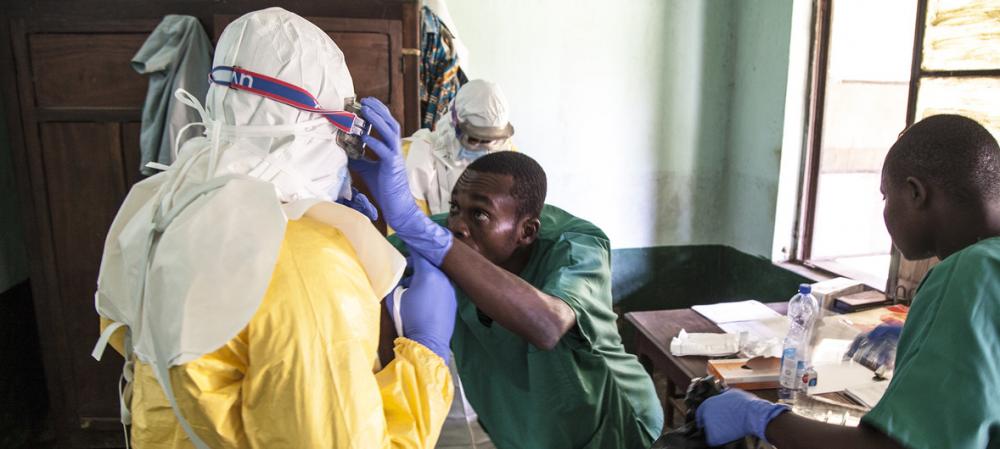Just Earth News | @justearthnews | 18 May 2018, 12:41 pm Print

New York: The World Health Organization (WHO) is convening an emergency meeting on Friday to “consider the international risks” of the latest outbreak of the deadly disease Ebola, which has now moved to an urban area of the Democratic Republic of the Congo (DRC).
One new case of Ebola virus disease has been confirmed in Mbandaka, a city with a population of about 1.2 million, WHO confirmed on Thursday, raising fears that despite a rapid response by authorities, the outbreak has not been contained.
So far, 23 have reportedly died. Until Thursday, the more than 40 suspected or confirmed cases were all located in the area around Bikoro, close to the Congo River, and around 150 kilometres (about 95 miles) from the provincial capital Mbandaka, which is a busy port city.
“This is a concerning development, but we now have better tools than ever before to combat Ebola,” said Tedros Adhanom Ghebreyesus, the Director-General of WHO.
“WHO and our partners are taking decisive action to stop further spread of the virus,” he added.
“The arrival of Ebola in an urban area is very concerning and WHO and partners are working together to rapidly scale up the search for all contacts of the confirmed case in the Mbandaka area,” WHO Regional Director for Africa, Matshidiso Moeti, said in a statement.
This is a concerning development, but we now have better tools than ever before to combat Ebola – WHO Director-General Tedros
The meeting of the Emergency Committee will decide whether to declare an official public health emergency, which would trigger more international involvement and free up more resources to deal with the outbreak.
Apart from WHO and other UN agencies, the International Federation of Red Cross and Red Crescent Societies (IFRC), Médecins Sans Frontières (MSF), as other humanitarian organizations, have teams on the ground, working to contain the outbreak.
Response scaled up
The UN health agency is deploying around 30 experts to conduct surveillance in Mbandaka and is working with the DRC’s Ministry of Health advising communities on prevention, treatment and reporting of new cases.
WHO-partner, MSF, has also deployed its teams and is working with UN agencies to strengthen health capacity to treat Ebola patients.
Isolation zones have been set up in Mbandaka’s main hospital, and in Bikoro. Special Ebola treatment centers are also being established in Mbandaka and Bikoro, which will have capacity to treat 20 patients each.
In the next few days, MSF plans delivery of several tons of supplies, including medical kits; protection and disinfection kits; logistic and hygiene kits; and palliative drugs to Mbandaka.
Ninth outbreak in the country
This is the ninth outbreak, since the discovery of the Ebola virus in the country in 1976.
The virus is endemic to DRC, and causes an acute, serious illness, which is often fatal if untreated. The virus is transmitted to human through contact with wild animals and can then be passed from person to person. Ebola is fatal in about 50 per cent of cases.
An outbreak in West Africa that began in 2014 left more than 11,000 dead across six countries, and was not declared officially over by WHO until the beginning of 2016.
First symptoms generally include the sudden onset of fever, fatigue, muscle pain, headache and sore throat. This is followed by vomiting, diarrhoea.
UNICEF/Naftalin
- Ukraine’s health system under fire: Attacks spike 20% in 2025, WHO warns
- A dog’s loving lick turned deadly — She woke up without her limbs
- Scientists reveal how exercise could protect your brain from Alzheimer’s
- The cure exists — So why are Cataract patients still going blind?
- New hybrid Mpox strain surfaces in UK and India — WHO sounds global alert





-1763561110.jpg)
